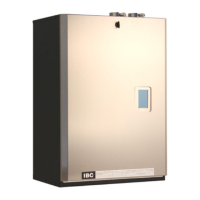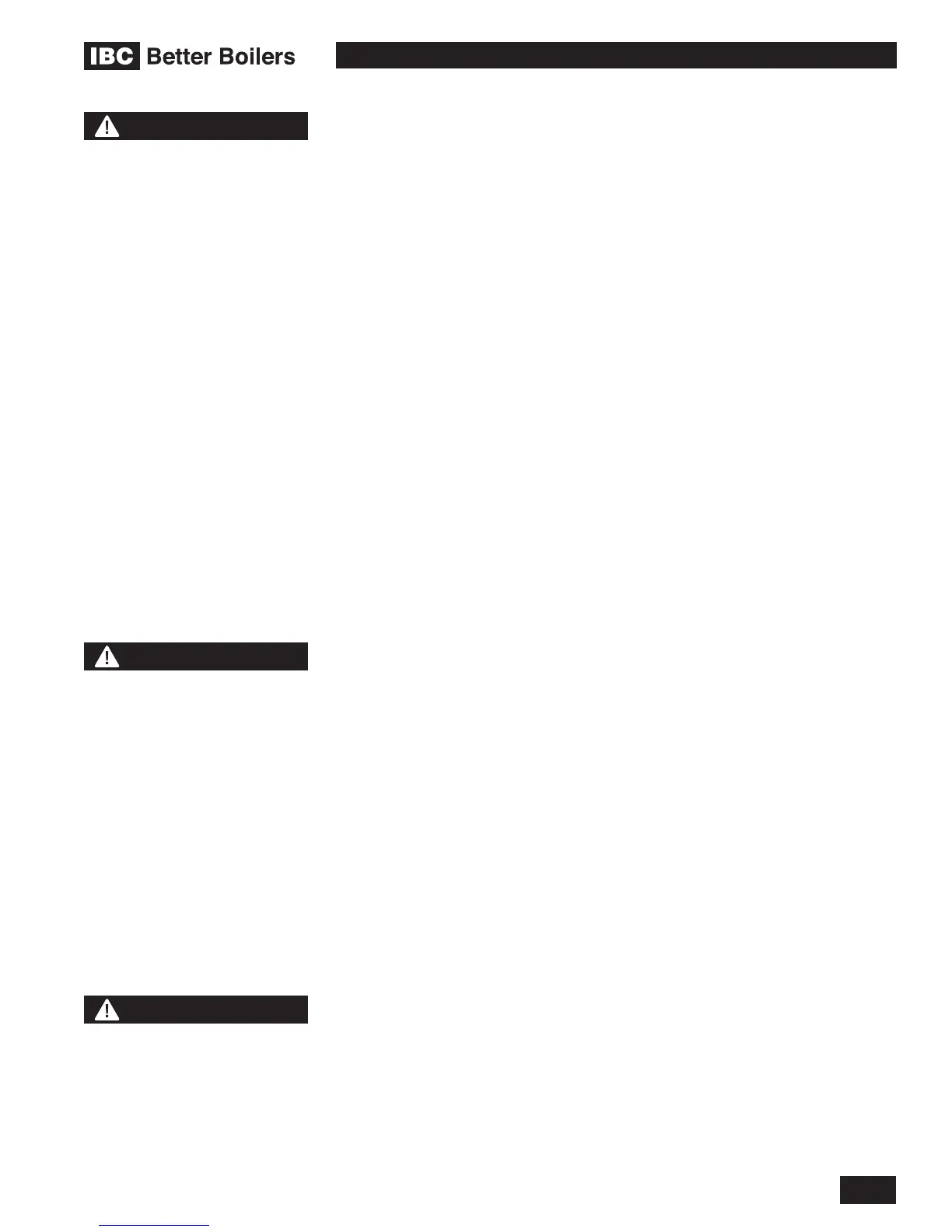4-3
MAINTENANCE
SL 35-199, SL 45-260 MODULATING GAS BOILERS
4.1.12 Boiler Treatment
• Check consistency of any boiler treatment used, for appropriate mixture.
Chemical inhibitors are consumed over time, lowering their density.
• Verify proper operation after servicing.
4.1.13 Relief Valve - Maintenance and Testing
The relief valve manufacturer requires that under normal operating conditions
a “try lever test” must be performed every two months. Under severe service
conditions, or if corrosion and/or deposits are noticed within the valve body,
testing must be performed more often. A “try lever test” must also be performed
at the end of any non-service period.
Test at or near maximum operating pressure by holding the test lever fully open
foratleast5secondstoushthevalveseatfreeofsedimentanddebris.Then
release the lever and permit the valve to snap shut.
If the lever does not activate, or there is not evidence of discharge, discontinue
useofequipmentimmediatelyandcontactalicensedcontractororqualied
service personnel.
Ifthereliefvalvedoesnotcompletelyseal,anduidcontinuestoleakfromthe
dischargepipe-performthetestagaintotryandushanydebristhatmaybe
lodged in the valve. If repeated tries fail to stop the leakage, contact a licensed
contractororqualiedservicepersonneltoreplacethevalve.
Whileperforminga“trylevertest”,aquantityofheattransferuidwillbe
dischargedfromthepipingsystemandthesystempressurewilldrop.Thisuid
must be replaced. It is highly recommended that a system pressurization unit,
such as an Axiom Industries model MF200beemployedtorellandpressurize
yoursystem.Capturethedischargeduidinacontainerandrecycleitby
returning it to the system feeder unit. This is particularly important when your
system contains treatment chemicals or glycol solutions. If the system employs
plainwater,theboilerautollvalvemustbeturnedoninordertorechargethe
lostuid.
CAUTION
Before testing the relief valve,
make certain the discharge
pipe is properly connected to
the valve outlet and arranged
to contain and safely dispose
of equipment discharge.
NOTE
Installers should inquire of
local water purveyors as to
the suitability of their supply
for use in hydronic heating
systems.
If water quality is
questionable, a local water
treatment expert must
be consulted for testing,
assessment and, if required,
treatment.
Alternatively, water or hydronic
uid of known quality can be
brought to the site.
WARNING
Do not use automotive-type
ethylene or other types of
automotive glycol antifreeze,
or undiluted antifreeze of
any kind. This may result
in severe boiler damage. It
is the responsibility of the
Installer to ensure that glycol
solutions are formulated to
inhibit corrosion in hydronic
heating systems of mixed
materials. Improper mixtures
and chemical additives may
cause damage to ferrous and
non-ferrous components as
well as non-metallic, wetted
components, normally found
in hydronic systems. Ethylene
glycol is toxic, and may be
prohibited for use by codes
applicable to your installation
location. For environmental
and toxicity reasons, IBC
recommends only using non-
toxic propylene glycol.

